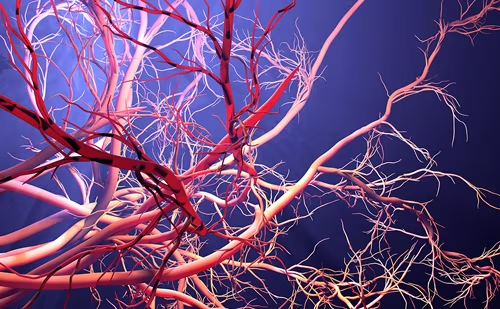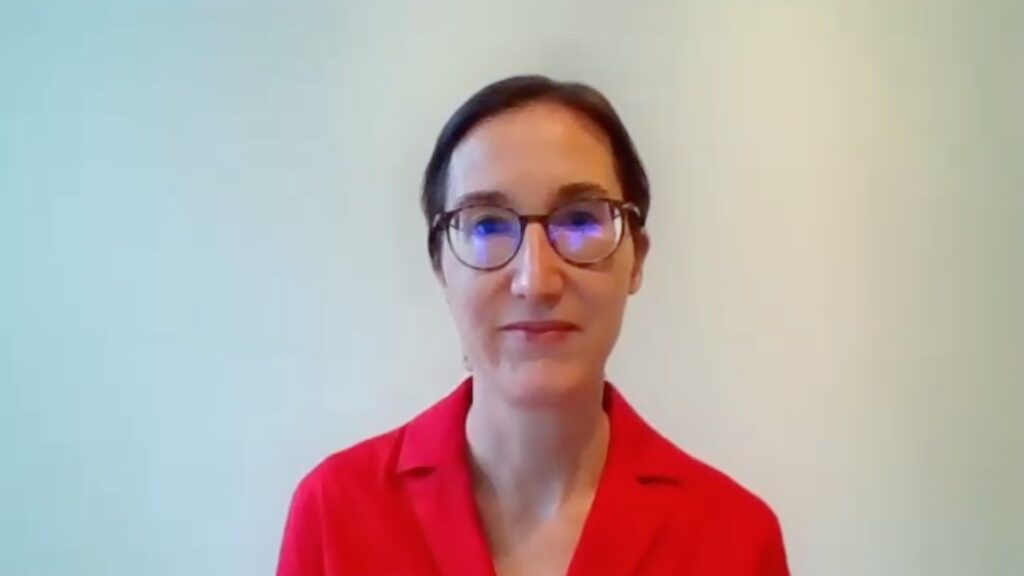Vasculitis
An Introduction to Vasculitis
Vasculitis encompasses a diverse group of rare disorders linked by inflammation of blood vessel walls, which may result in organ failure or death. Vasculitis is categorized by size of the predominant vessel involved and includes small-, medium-, and large-vessel vasculitis. The most common forms are giant cell arteritis and polymyalgia rheumatica. Vasculitis may be primary, with no known cause, or secondary to infection, drugs, toxins, inflammatory disorder or cancer. They have a broad range of clinical presentations that can be systemic or organ-specific, and are often similar to more common diseases, resulting in diagnostic delay and poor outcomes. Treatment options include corticosteroids, methotrexate, azathioprine, mycophenolate, cyclophosphamide, tocilizumab and rituximab.

This interview with Dr Brian Jaros, part of our Future Leaders series, highlights his journey into vasculitis, his passion for medical education, and his outlook on the evolving landscape of rheumatology. He shares insights on mentorship, research, and the importance of leading with enthusiasm to inspire the next generation of clinicians.

Physician burnout is at a critical point. In this episode, Nicky speaks with Dr Alfred Atanda about why so many physicians are burning out and what can be done to change the trend. From personal experience to system-wide solutions, Dr Atanda shares valuable insights on improving physician well-being and building a more effective healthcare culture.

In this episode, we explore the future of continuing medical education (CME) with the team behind touchIME. Hannah Fisher and Matthew Goodwin share insights into global and US trends, the importance of patient inclusivity and how educational outcomes are evolving to better measure the direct impact of learning on clinical practice and patient care.

The European Commission has approved upadacitinib for treating giant cell arteritis (GCA) in adults. This marks the first oral JAK inhibitor approved for GCA in the EU. Backed by the findings from the phase III SELECT-GCA trial, upadacitinib offers a new option for managing this chronic inflammatory disease in adults.

In this edition of our Future Leaders series, we speak with Dr. Santhanam Sham, a rising star in rheumatology. As a Senior Consultant at Kauvery Hospitals, Chennai, Dr. Sham is dedicated to advancing research on autoimmune diseases like SLE and vasculitis, while also fostering patient-centric care and embracing cutting-edge medical technologies.

This corrects the article: “Gheriani GA, Tuetken R and Lenert P. Lane–Hamilton Syndrome: A Vasculitis Mimic Presenting with Diffuse Alveolar Haemorrhage and Positive ANCA Testing. touchREVIEWS in RMD. 2024;3(1):37–42” The patient consent statement was added incorrectly due to an editorial ...

Diffuse alveolar haemorrhage (DAH) is associated with high morbidity and mortality. The causes of DAH are diverse, and include rheumatologic conditions such as granulomatosis with polyangiitis (GPA), microscopic polyangiitis (MPA), Systemic lupus erythematosus (SLE) and Goodpasture’s syndrome (Table 1). Rheumatologists ...

There is a lack of biomarkers to profile phenotypes in giant cell arteritis (GCA) and predict potential complications. Serum protein profiling may identify molecular-based phenotypes and facilitate personalized medicine approaches. touchIMMUNOLOGY were delighted to speak with Dr Lisa Christ (Universitä...

Giant cell arteritis (GCA) is a primary systemic vasculitis characterised by systemic inflammation and vascular insufficiency of large and medium blood vessels which may lead to end-organ damage in patients age 50 and older. touchIMMUNOLOGY were delighted to speak with Dr ...

GiACTA was a randomized, double-blind, placebo-controlled study that investigated the safety and efficacy of tocilizumab, an IL-6 receptor antagonist, in patients with giant cell arteritis. touchIMMUNOLOGY were delighted to speak with Dr. Naomi J Patel (Massachusetts General Hospital, Boston, MA, ...

Antineutrophil cytoplasmic antibody (ANCA)-associated vasculitis (AAV) represents a spectrum of disorders primarily affecting the small blood vessels in various organs. It often affects the kidneys, causing rapidly progressive renal failure due to necrotizing crescentic glomerulonephritis. Another major cause of ...

The SAPHYR study (NCT03600818) investigated sarilumab, a fully human anti–IL-6Rα monoclonal antibody, in patients with glucocorticoid resistant polymyalgia rheumatica (PMR), measuring efficacy by sustained remission in PMR. touchIMMUNOLOGY were delighted to speak with Dr. Robert Spiera (Weill Cornell ...

The GUSTO trial (NCT03745586) investigated the efficacy and safety of tocilizumab (TCZ )-monotherapy after ultra-short glucocorticoid treatment in new-onset giant cell arteritis (GCA). touchIMMUNOLOGY caught up with Dr. Lisa Christ (University of Bern, Inselspital, Bern, Switzerland) to discuss this analysis ...

Giant cell arteritis (GCA) is an inflammation of the arteries which causes multiple symptoms including head pain and tenderness and can result in vision loss. touchIMMUNOLOGY caught up with Dr. Lisa Christ (University of Bern, Inselspital, Bern, Switzerland) to discuss ...

The southend pre-test probability score (SPTPS) was recently developed to estimate the probability of giant cell arteritis (GCA) based on symptoms, signs and lab findings. In this interview with Prof. Bhaskar Dasgupta (Southend University Hospital NHS Foundation Trust, Southend-on-Sea, UK) ...

Giant cell arteritis (GCA) presents differently in early stages of the disease, early diagnosis is vital in reducing more severe symptoms such as sight loss. In this interview with Prof. Bhaskar Dasgupta (Southend University Hospital NHS Foundation Trust, Southend-on-Sea, UK) ...

SAPHYR (NCT03600818) was a randomized, double-blind, placebo-controlled phase 3 study, investigating the efficacy and safety of sarilumab in polymyalgia rheumatica. In this interview with Prof. Bhaskar Dasgupta (Southend University Hospital NHS Foundation Trust, Southend-on-Sea, UK) we discussed the aims, design, eligibility ...
Latest articles videos and clinical updates - straight to your inbox
Log into your Touch Account
Earn and track your CME credits on the go, save articles for later, and follow the latest congress coverage.
Register now for FREE Access
Register for free to hear about the latest expert-led education, peer-reviewed articles, conference highlights, and innovative CME activities.
Sign up with an Email
Or use a Social Account.
This Functionality is for
Members Only
Explore the latest in medical education and stay current in your field. Create a free account to track your learning.


